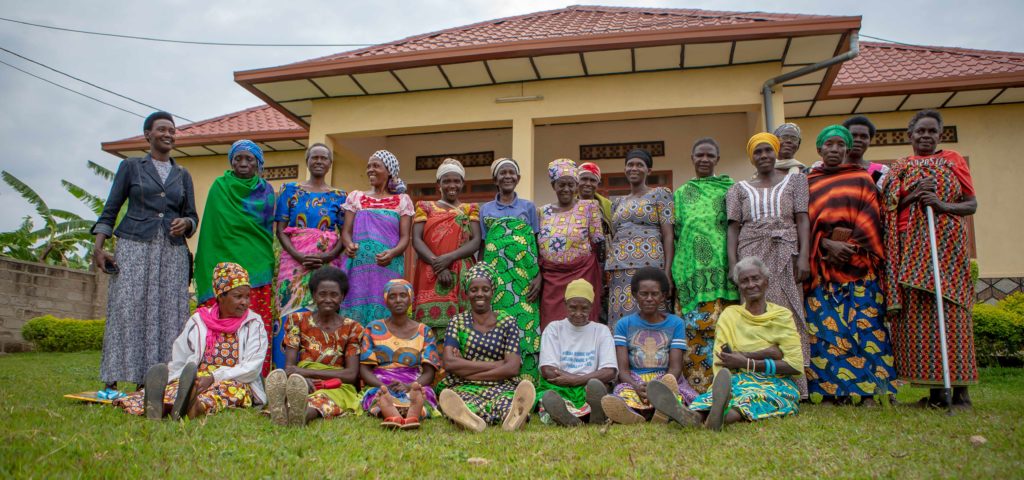
Survivors Fund (SURF) works in partnership with AVEGA Agahozo to provide support to genocide widows in the Southern Province of Rwanda through our HIV+ Survivors Empowerment Project which was funded through to March 2018 by Comic Relief and with the support of other funders we have been able to extend through to December 2018.
The project aims to increase and secure income for vulnerable genocide widows through an integrated microfinance loan guarantee scheme and counselling model. On our recent visit to Rwanda we met one of the 38 groups funded through the extension of the project, the Abishizehamwe group, and its leader Mukankusi Hilarie, to film the work that they are undertaking as well as to interview Hilarie to learn more about it, an extract of which we publish here:
From coming together, we have been able to start saving during the training, from as little as 100 Rwf (10p) a week, and from that we have been able to build this group together. I am happy that the training happened, and brought us together, and for the peace that we have in this area which enables us to participate in our small businesses.
Through AVEGA committees and the National Level Committee, we were able to identify women locally who could join our groups, with the help of the local AVEGA representative.
Through SEP we have been able to receive training in how to start a small business, and how to conduct business. After we had collected sufficient savings, then we were able to start up a small business farming and selling beans.
This last season we have had two harvests of beans, and we have been able to sell off some beans already, and have around 1.5 tonnes still in storage. The beans cost around 400 Rwf (40p) a kilogram to produce, and we are now selling them for 600 Rwf (60p). As such, we expect to make £3,000 profit this year. The profits we use to help members to buy medical insurance for ourselves, and our beneficiaries, as well as to buy clothes, in particular for older members of our group.
The local authorities have watched how we have progressed, and they have now given us a piece of land to farm more beans. The local authority has confidence in what we are doing, in seeing how our group comes together, and how it is working well together.
In our group we have a way of supporting our members. If a member has a problem, then they can borrow from our group savings – and can do so without any interest. If they are a member they have access to this interest-free loan from the group.
From our savings we have been able to buy a piece of land where we will build our store, as currently we are keeping the stock in the house of one of our members. That will be our focus in the next few months.
We bought a plot for 350,000 Rwf (around £350). It is not big, but it is sufficient for us. I hope that when we start building on it, and extend our business, we will be able to process the produce from our farm. As we start, it is like we are riding a bicycle. But we want something more. So in time we hope that we will be riding a motorbike, or even a car!
We will be publishing the film next year as part of our 25th Anniversary Campaign in April 2019 (marking 25 years on from the start of the Genocide against the Tutsi in Rwanda) to tell the story of how the survivors of the genocide, such as members of the Abishizehamwe Group, have rebuilt their lives in the aftermath as well as the challenges they still face today. Ahead of the publication, we are publishing extracts of interviews, such as that with Daphrose, a widow of the genocide, and Iwacu Productions, which are making handicrafts made available for sale through the Rwandan Beauty website.
